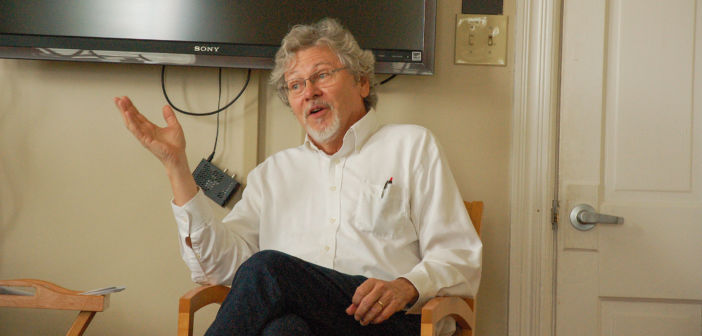A tutoring program is looking for volunteers who will travel out of the “Lehigh bubble” and step into prison.
As part of the Lehigh Prison Project, students and faculty visit and tutor inmates at the Northampton County Prison once a week.
Professor of religious studies Lloyd Steffen started the Prison Project in 2008. At the time, Steffen had been teaching a class that incorporated community service at the prison. When the course was no longer offered, he decided to continue the service in the form of the Prison Project.
Students travel to the prison different days of the week depending on their schedules, as the tutoring hours occur while Lehigh classes are in session. The inmates are working on high school equivalency preparation.
The tutoring sessions last 90 minutes, and volunteers have to travel 30 minutes each way to get to the prison, so students and faculty try to coordinate rides.
Steffen said while some students start volunteering at the prison so they can include it on their resumes, most of them end up loving the experience because they feel like they are really making a difference.
The program has drawn students from a wide range of colleges and majors, and the program offers students an interesting addition to their resumes. He cited several students who participated in the project and later applied to medical school. Steffen said many medical school applicants have similarly strong GPAs and course experience, but few have uncommon volunteering experiences like the Prison Project. Steffen said the students’ experience with the project set these students apart from other applicants in medical school interviews.
In addition to impacting the community and gaining community service experience, Steffen said the Prison Project encourages students to rethink how they view the prison system and felons.
“Overall, Lehigh is a very privileged lot, so it is important to interact with people who have been at a disadvantage,” he said.
Brooke Bartels, ’18, is a psychology and health, medicine and society double major. She participates in the Prison Project as a tutor, and said it has motivated her to work with the incarcerated population and within the incarceration system after graduation.
“It’s given me an immersive experience, so now I understand, to an extent, what it’s like to have doors locked behind you,” Bartels said.
Bartels said the most rewarding part of her experience was being able to watch one of the women she had tutored earn her GED and eventually be released from the prison.
While volunteers do get to watch some inmates complete their GEDs, the volunteers rarely get to tutor the same people consecutively.
Professor Dena Davis said the average length of stay for prisoners is 69 days, and that no one stays at Northampton County Prison for longer than a year, which creates a fluid situation. Additionally, inmates can choose whether or not to come to the classroom for tutoring, and she said participation at tutoring events can fluctuate between sessions.
“Sometimes you will work with someone several weeks in a row, but other times you will work with someone and then never see them again,” Davis said, “I love it, but it can be frustrating.”
Even if inmates don’t earn their GEDs while in prison, they can earn pass individual sections of the test, which can eventually culminate in a GED after their release. There are four parts of the GED, so earning a GED technically would mean passing the fourth part of the test. Finishing the four parts doesn’t always happen all at once, so people can earn the certificate over a period of time.
The advantage of taking the GED while in prison is that inmates don’t have to pay for the test. If the test is taken outside of prison, it costs $20 for each test, amounting to $80 total.
Both Davis and Bartels have had experience tutoring inmates who know little English. They both said the people they were tutoring knew as much English as they knew Spanish. While they taught the inmate English, the inmates taught them Spanish.
Bartels said she wants to work within the penal system, but she’s not sure if she would want to work with inmates on an interpersonal level or adjust policy at the administrative level.
“I want to make change, and I think that there are things on every level (of the incarceration system) that need to be fixed,” she said.
Information sessions for the Fall 2017 Prison Program were held Wednesday and Thursday in the Dialogue Center.






Comment policy
Comments posted to The Brown and White website are reviewed by a moderator before being approved. Incendiary speech or harassing language, including comments targeted at individuals, may be deemed unacceptable and not published. Spam and other soliciting will also be declined.
The Brown and White also reserves the right to not publish entirely anonymous comments.